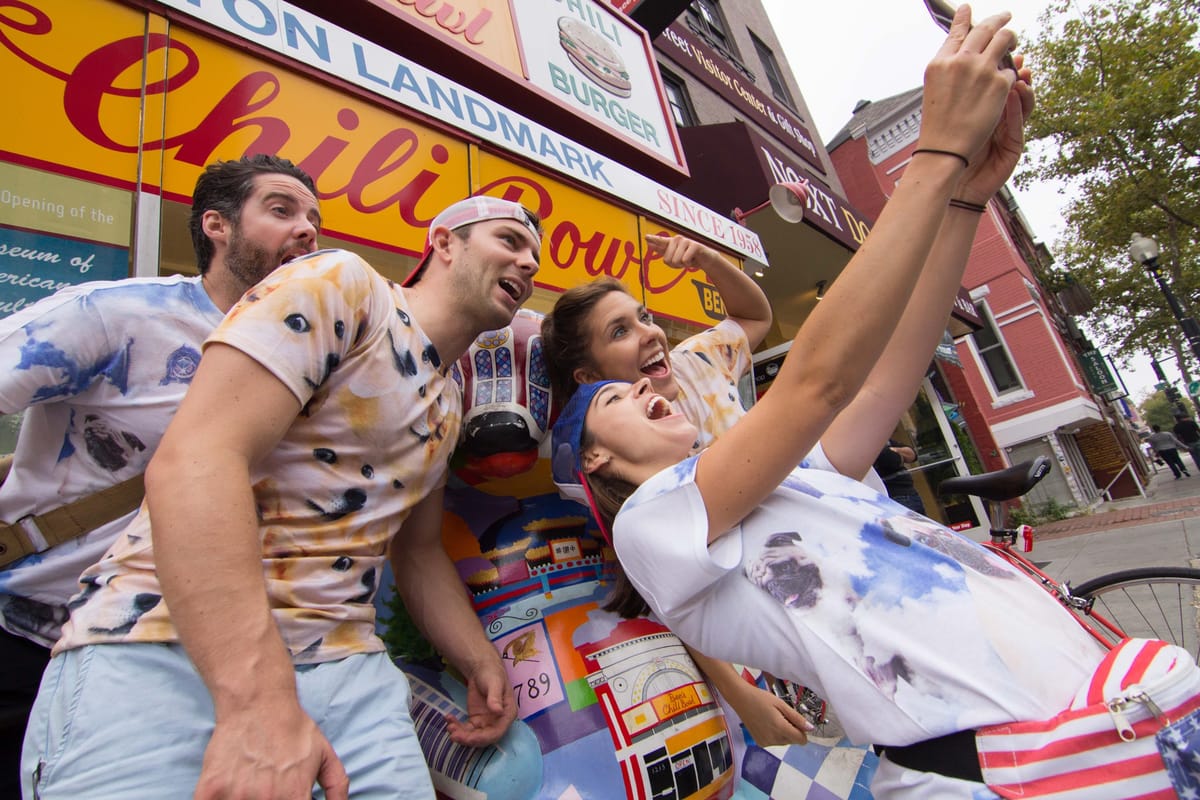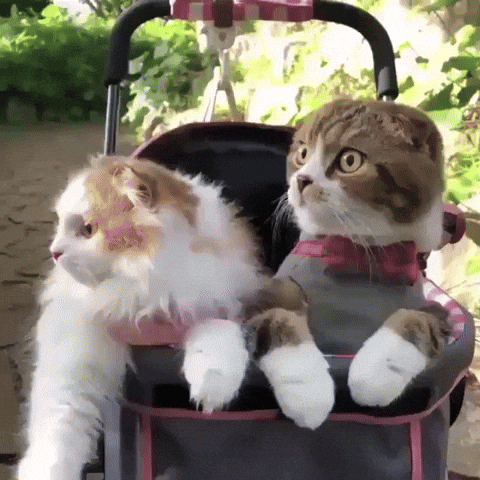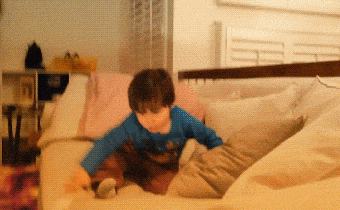Riddle Us This: What If Play Is the Whole Point?
When adults play, creativity spikes, connection deepens, and joy becomes contagious. This post is a reminder (and a challenge) that you don’t need permission to play. You just need a moment where you say, “What if?”

How Adult Play Fuels Better Teams, Stronger Culture, and Real Connection
Somewhere between childhood and adulthood, we trade play for productivity. The schedule fills up. “Play” gets scheduled, if it happens at all. However, studies in social psychology show that adults who maintain play in their lives experience real benefits at work: stronger teams, more creativity, and deeper job satisfaction.
At Handstand, we believe play is the spark. Play creates joy. It unlocks creativity, builds trust, and creates moments people remember.
So we’ve learned to operate from the question: What happens when you lead with play?
Where Handstand’s Play Started
Handstand began with four friends and way too much energy.
We biked up mountains, designed our own games, and turned entire cities into playgrounds. Then the first SF Hunt launched in 2014: 12 hours, 100 teams, and a full city transformed into a riddle-filled playground.
People showed up dressed as penguins, Power Rangers, and Jazzercise icons. Our team ran the streets in bear suits. Instagram blew up, and a community formed around one idea: play is powerful.
From Street Corners to Global Teams
We kept going. Soon, companies like Stripe, Meta, LinkedIn, and Google called.
They didn’t want icebreakers—they wanted experiences that sparked real connection. So we gave them:
- Custom scavenger hunts packed with riddles, video prompts, and wild creativity
- Game-based onboarding journeys
- Immersive escape rooms built inside their offices
- Thousand-person events linking teams across time zones
This was the beginning of "play as a service." With events like The SF Hunt, Kartwheel (real-life Mario Kart), and The Loop (a 200-mile team relay), we created fun events and made people forget they were "team building." It was simply a byproduct of having an awesome time.
The Handstand Playbook
Over 12 years in, we keep a few lessons close.
1. Riddles Are No Joke
Writing a great riddle takes clarity, empathy, and practice. It is not easy. It requires serious thinking and a lot of iteration. The self-inflicted torture (read: our version of brain-stretching fun) pays off when we build an incredible game that folks rave about.
2. Build with Grit, Energy, and Glitter
Handstand grew through energy, creativity, and persistence. We passed out flyers in costumes. We gave away coffee on the street.
We chased cyclists down city streets just to spread the word. Every event began, and still begins, with a full team effort and a touch of "what in the world."
3. Play Creates Real Connection
When people play together, they drop their guard. They start laughing. They solve problems together. These are the moments that shape joyful people and strong teams.
10 Ways to Add Play to Your Life
Our challenge to you is to find a way to play every single day. Whatever that looks like for you. Here are 10 ideas to give you a little playful kick in the a**.
1. Go to the Park. Hug as Many Trees as You Can in 30 Seconds.
Yes, people might stare. They also might ask to join.
2. Make a Collage
Cut, glue, and assemble your current mood using whatever's around. Old National Geographic magazines are awesome for this, and so is anything you can glue to a piece of paper. Don’t think too hard. And don’t judge yourself.
3. Reverse Hide and Seek (a.k.a. Sardines)
Invite some friends over for a game of Sardines. Hide. Find. Squeeze in. It’s chaotic and fun. Kids love it, and adults should play Sardines more. If this is a new concept to you, you're welcome. Here's how to play Sardines.

4. Invent a Game Out of Nothing
Throw balled-up paper into a cup. Move it further away. Bounce it off the wall. Try your craziest trick shot! During our Journey to Jidara escape room pop-up, we had a very official unofficial competition to see who could jump the highest and add a sticker to the wall.
5. Play the Floor is Lava
You know the rules. You also know you want to.

6. Draw With Your Non-Dominant Hand
Make a bunch of random squiggles without picking up the pen or pencil. Then find images inside it to color, or color an abstract pattern. The worse it is, the better it is.
Level up and make it a competition! Ask strangers on the street to pick their favorite and send us the results 😉.
7. Solve a Puzzle
Wordle, Connections, riddles, crosswords, word games, Sudoku, a physical puzzle...you name it. Give your brain a play break.
8. Dance Wildly to One Song (Or More)
Flail. Spin. Move your body in 18 different directions. Lip sync dramatically. Repeat tomorrow.
9. Narrate Your Life Like a Nature Documentary
Go full David Attenborough. Or turn into Snoop Dogg narrating Planet Earth. "And now, the human performs its sacred morning ritual: transforming brown bean dust into a hot drinkable liquid."
10. Be Bad at Something
The best vehicle for learning something new is to make an attempt and fail miserably. Be bad at something! A new art medium, a new recipe, photography, doing a handstand...
Why Play Matters
You don’t need a costume or an invitation to be playful. You just need a moment where you say, “What if?” and allow yourself to be a little bit ridiculous. That’s where the fun lives.
We (and science) say that creativity, connection, and better well-being all follow close behind. Some new silly friends, too.
And hey, a costume helps....
A Reminder to Choose Play
This isn’t about reliving recess. It’s about reclaiming what adults were never meant to lose: play, wonder, and the ability to connect with joy.
So if you’re a team lead, HR manager, or CEO who wants your people to feel engaged, energized, and excited to be together, then forget the keynote speaker. Try a scavenger hunt in your city, or have an escape room dropped in your office.
You need a riddle, a bear suit, and a reason to high-five again. Because play isn’t a break from work. It’s what makes work...work.
